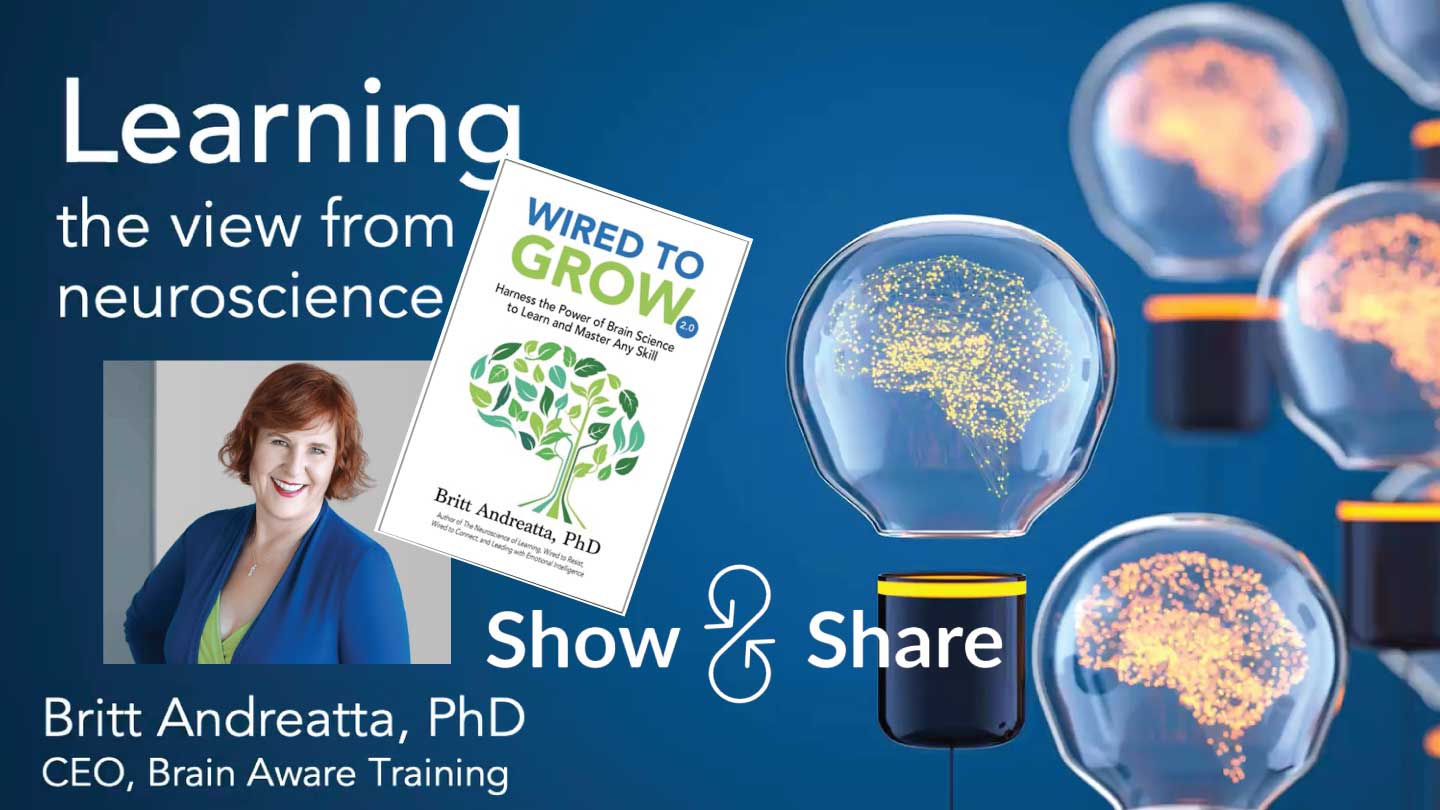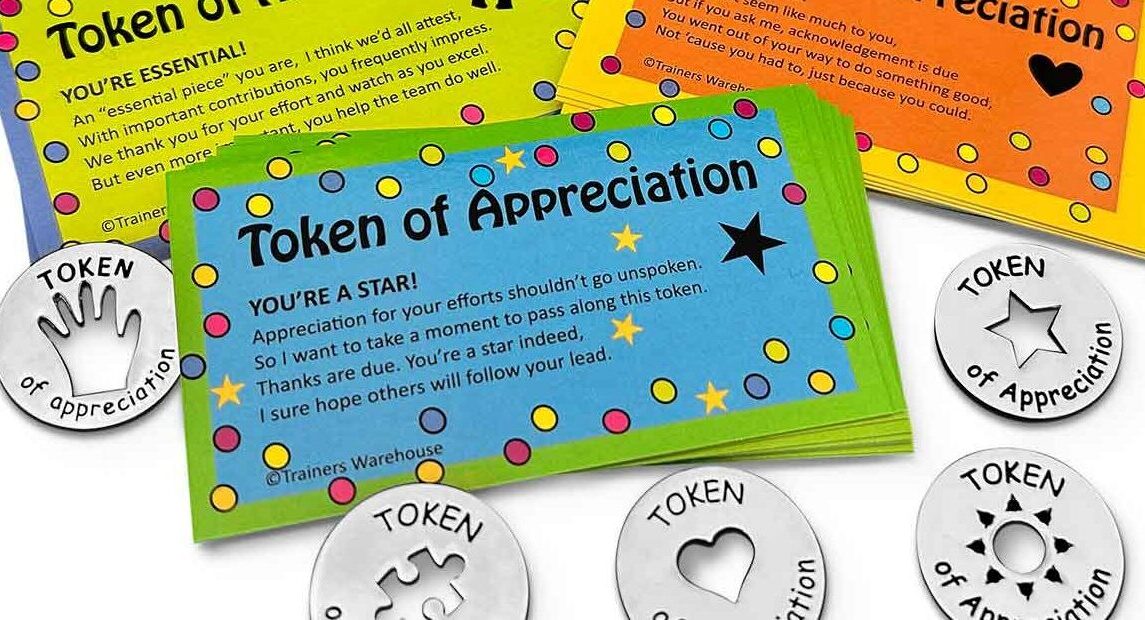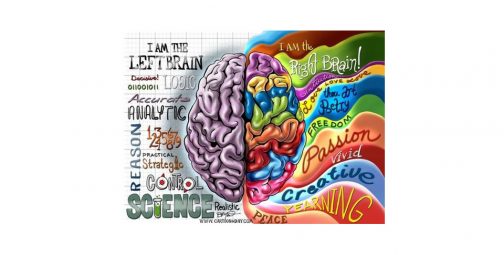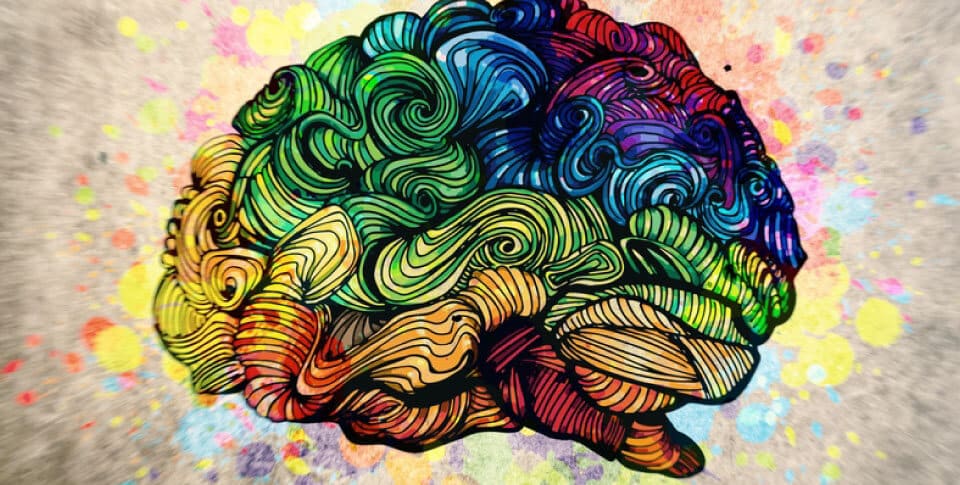Category: BRAIN SCIENCE
For over 30 years, Trainers Warehouse has sold tools and resources to promote active, brain-based learning. Trainers frequently ask us how they can get buy-in from managers. Facilitators of learning view games and fidgets as important tools of their trade, but managers sometimes see them only as “toys.” As such, we’re on the lookout for brain science research that supports the learning theory and applies the neuroscience of learning.
Britt Andreatta’s Brain Science Tips
Huge thanks to Britt Andreatta for joining our recent Show & Share by Trainers Warehouse to share Brain Science Training tips from her book, Wired to Grow. The following are top takeaways, drawn from both her wisdom and that of our seasoned training participants. THE BRAIN ON LEARNING Learning b... Read MoreInteractive Training Tips from Cindy Huggett & Katrina Kennedy
At our Show & Share sessions with Katrina Kennedy and Cindy Huggett, I gathered so many interactive training tips that I had to pass them along. Both focused on interactivity and engagement, but from different angles: Katrina, with her upcoming book, Learning that Lasts, focused on Reviews and R... Read More4Cs of Brain-Based Learning
I had the pleasure of co-facilitating a session with Angela Agresto, introducing her new tool, Brain Building Blue Prints to our Trainers Warehouse community. The tool, based on Sharon Bowman’s 4C-framework for designing and delivering training, maps perfectly to brain-based learning. By pairi... Read MoreThe Power of Nostalgia in Training
As trainers, we always hope to create lasting new memories, chock full of learning to support improved work performance. Given how bombarded we are with social media images and marketing messages every day, it’s crazy that anything new “sticks” in our brains. That said, we trainers... Read MoreRecognition increases performance 24%
Always on the lookout for new research about the correlation of workplace appreciation with job satisfaction and performance, I was happy to stumble across the latest research study by Canva. I wanted to find out just how much recognition and reward affect workers’ performance. Following are s... Read MoreTake a Team Breath
I learned about the “team breath” at a recent conference. Well, maybe I didn’t just learn about it, as I’ve been practicing yoga for almost 7 years now. At yoga, classes typically open and close with a “cleansing breath.” In fact, at its core, yoga is a “bre... Read MoreBrain Bites – Brain Science Improves Training
Experiential learning isn’t just for fun. Diving into Elizabeth Kensinger and Andrew Budson’s book, The Science of Memory: Why We Forget and How to Remember Better, took me on an odyssey of understanding the brain and how trainers can harness its power to deliver more memorable training.... Read MoreBrain Science of Procrastination and 12 Procrastination Tips
Thanks to the Hidden Brain podcast, I learned about the Character Lab’s studies on procrastination. I’d already been sensitized to the topic by loved ones with ADHD who find it insanely difficult to jump right into a task. And, although I’ve sold thousands of “round TUITS,” I realize that ... Read MoreClean Slate Neuroscience for Effective Learning
When we first moved into a small, rustic house in the heart of the Berkshires, our first task was cleaning — cobwebs, dust, grease, old pots and pans, the works. Reflecting on the hard work, I appreciate that the same sort of preparation is required whenever you create something new — a ... Read MoreBrain Science in Training
We’re often asked if these creative, brain-based learning techniques work. We think using brain science in training works, but try it yourself. Complete this brain science worksheet, then see how many of the 6 brain-science principles you remember. Brain research focusing on learning and memory co... Read MoreThe Neuroscience of Learning
Through brain science research, we've learned more about the parts of the brain and how they work together to help us understand and retain new information. We understand, for instance, that:- Greater engagement leads to deeper learning. And, the more areas of the brain that are in use, the more memorable the learning episode.
- Focus decreases during longer learning segments.
- Visual images, mnemonics, and metaphors help our brains organize information.
- Endorphins create feelings of euphoria and activate our frontal lobes, the part of the brain responsible for learning.
- Cortisol, the stress hormone, inhibits memory and attention.











